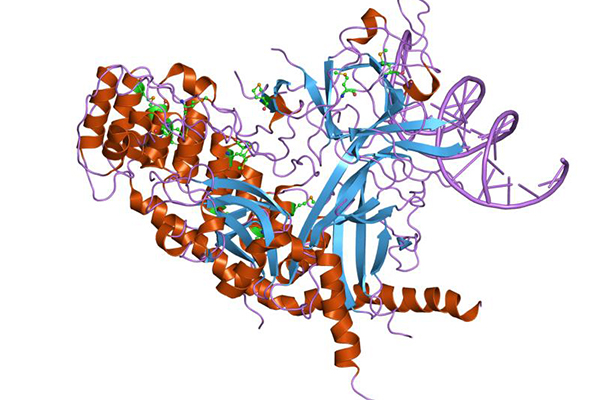Articles by Kristen Mueller, PhD
New Immunotherapy Drugs Targeting LAG-3 Show Great Promise
By Kristen Mueller, PhD | 23 June 2021 In News, Science, Treatment
Researchers presented a series of highly encouraging clinical trial results at the recent American Society for Clinical Oncology (ASCO) annual meeting that suggest that new drugs targeting the protein LAG-3 – developed by BMS and Regeneron – may be an important addition to the current treatment arsenal.
Melanoma Models for the Next Decade of Progress
By Kristen Mueller, PhD | 8 February 2021 In Science
Despite the tremendous progress that’s been made over the past decade for patients with melanoma, nearly half of patients do not benefit from currently approved therapies. Developing novel therapies for these individuals is a daunting challenge that begins with laboratory studies and hopefully ends with a drug candidate that is...
Exciting End of Year Melanoma Clinical Trial Results
By Kristen Mueller, PhD | 11 December 2020 In Science, Treatment
The annual Society for the Immunotherapy for Cancer (SITC) meeting did not disappoint, despite its virtual format, when it came to new clinical advances for melanoma. Researchers presented data from several important clinical trials and highlighted several novel agents that may boost responses to checkpoint immunotherapy.
Clinical Trials to Watch: Intralesional Therapies for Melanoma
By Kristen Mueller, PhD | 8 February 2020 In Science, Treatment
To an outsider, the number of new treatment options for melanoma may seem to be moving at a breakneck pace. Checkpoint immunotherapy and BRAF/MEK inhibitors have greatly improved outcomes for many late-stage melanoma patients, with over 50% of patients on combination ipilimumab/nivolumab still alive after 5 years.
Can We Combine Immunotherapy and Targeted Therapy for Better Results?
By Kristen Mueller, PhD | 25 June 2019 In Science, Treatment
Researchers are now considering how to build upon the success of immune-based and targeted therapies to help even more patients live longer, healthier lives. This month, several studies reported on efforts to combine PD-1 based immunotherapy with BRAF/MEKi targeted therapy to form the first ‘triple combos’ in melanoma.
Clinical Trials to Watch: Turning Cold Tumors Hot
By Kristen Mueller, PhD | 15 May 2019 In Science, Treatment
We know that the billions of bacteria that live in our bodies can impact the way we respond to immunotherapy, but can we harness this help more patients respond these life-saving drugs?
What’s Next for the Microbiome in Melanoma?
By Kristen Mueller, PhD | 11 April 2019 In Science, Treatment
We know that the billions of bacteria that live in our bodies can impact the way we respond to immunotherapy, but can we harness this help more patients respond these life-saving drugs?
L’Oréal Paris USA-MRA Team Scientists shed light on how melanoma spreads
By Kristen Mueller, PhD | 29 August 2017 In Allies & Partnerships, Science, Treatment
MRA is extremely proud of the 289 investigators we have funded over the last decade and the exciting advances they have made toward ending suffering and death due to melanoma. While we can never highlight all of them at one time, we’re excited in this blog to highlight the work of the L’Oreal Paris USA sponsored MRA Team award.
Why so much excitement about CAR-T cells?
By Kristen Mueller, PhD | 18 July 2017 In News, Science, Treatment
July 12, 2017, marked a historic day for medicine and for the US Food and Drug Administration (FDA) when an expert advisory committee to the FDA unanimously endorsed the first ever genetically engineered, cell-based therapy for use in patients.
The Genetics of Melanoma Goes Deep
By Kristen Mueller, PhD | 6 June 2017 In News, Science, Treatment
Due to the rapid advancements in DNA sequencing technologies, our understanding of the underlying genetic causes of cancer has increased substantially in the past decade. In the case of melanoma, researchers have now characterized in great detail the genetic changes that occur within tumor cells in melanoma of the skin, leading to the FDA approval of drugs targeting mutations in BRAF and MEK.










